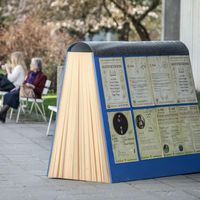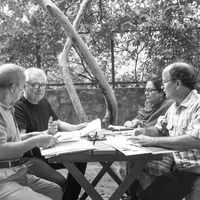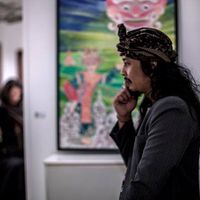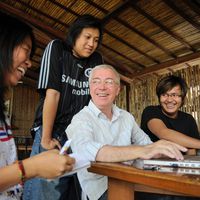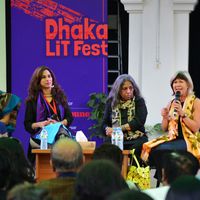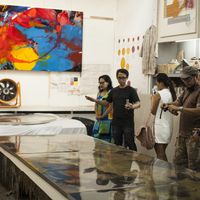Mystery, translation and critical thinking | Prima Vista Tartu International Literary Festival | Estonia
 ASEF culture360 contributor Claire Rosslyn WILSON talks to Marja UNT from the Prima Vista Tartu International Literary Festival to find out more about the literature scene in the Estonian UNESCO City of Literature.
ASEF culture360 contributor Claire Rosslyn WILSON talks to Marja UNT from the Prima Vista Tartu International Literary Festival to find out more about the literature scene in the Estonian UNESCO City of Literature.[caption id="attachment_58483" align="aligncenter" width="620"]
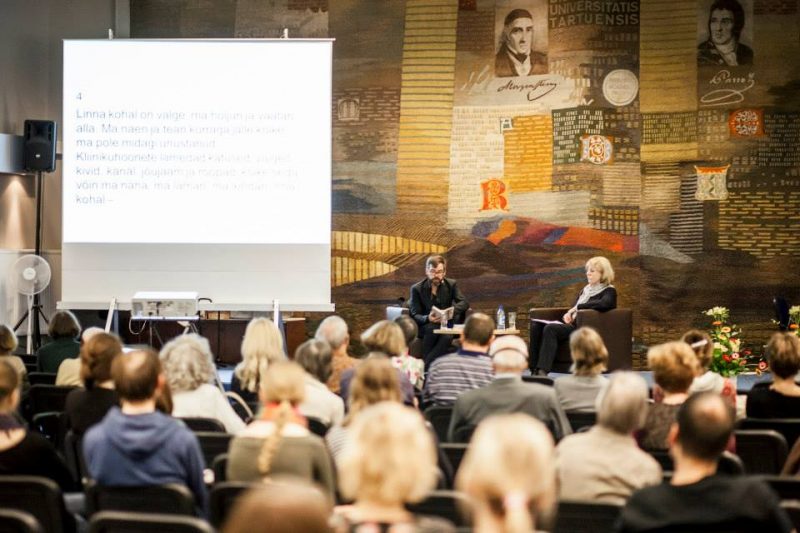 Prima Vista 2015, David Wagner. Foto: Uku Peterson[/caption]
Prima Vista 2015, David Wagner. Foto: Uku Peterson[/caption]In its 13th year, Prima Vista Tartu International Literature Festival is based in Tartu, the second largest city in Estonia. In 2015 Tartu was declared a UNESCO City of Literature and it has long been the considered the intellectual centre of the country. Its geographic location has often encouraged interesting synergies, as the City of Literature website states:
‘Throughout the centuries, the versatile artistic and academic communities of Tartu have intellectually benefited from the country’s geopolitical position between the Nordic and Southern Baltic countries on one hand and between Russia and the West on the other. Thus, Tartu is like an experimental laboratory where global ideas, academic knowledge, artistic creativity and a broad variety of lifestyles are being synthesised.’
The city is home to one of northern Europe’s oldest universities (University of Tartu, established in 1632) and it also houses the Estonian Literary Museum. Other literary organisations include Tartu Writers’ House, which is home to the Tartu Department of the Estonian Writers Union and the Estonian Literary Society, as well as the culture café Arhiiv which plays an integral role in attracting younger audiences.
There are a number of initatives that reinforce Tartu’s status as a City of Literature. One area of focus is developing the reading habit, which is supported by Little Free Library as well as a prize for the best work of children’s or youth fiction. The city also supports schools to invite writers to perform and is promoting reading in children’s day care centres. The city is also taking literature to the streets through the Bussiluule (Bus Poetry) project, where poems are placed on city buses throughout Tartu. The project plans to invite about ten poems from different authors once or twice every year.
Another important aspect of their strategy is to promote translation, by partnering with University of Tartu to provide students with more opportunities. Having literature available for Estonian audiences is an important aspect of promoting international exchange, a challenge that Prima Vista also faces in its programming.
Prima Vista is an important part of the literary scene in Tartu, not least because of their promotion of diverse voices through the international writers invited to participate in the festival. This year the international guests include writers from Denmark, Finland, Germany, India, Ireland, Latvia, Poland and Russia, as well as the USA and Ukraine.
[caption id="attachment_58485" align="aligncenter" width="620"]
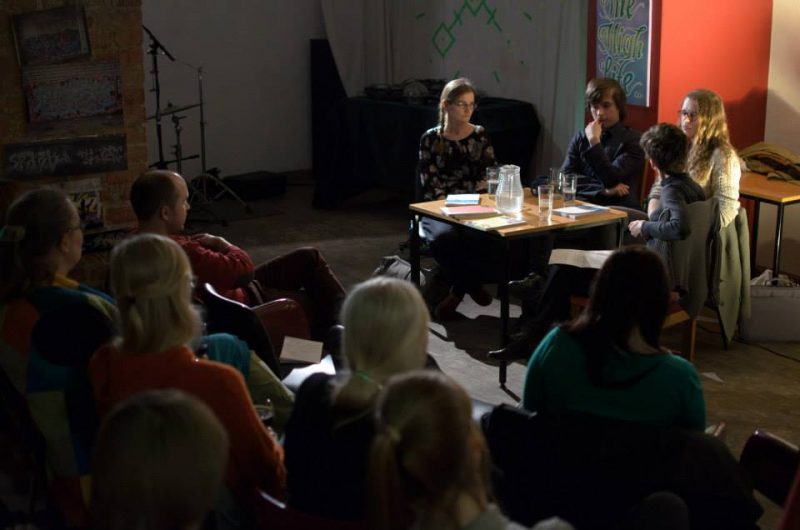 Prima Vista 2015, night of translation and cultural mediation. Photo: Rauno Kalda.[/caption]
Prima Vista 2015, night of translation and cultural mediation. Photo: Rauno Kalda.[/caption]In this interview Marja UNT explains a bit more about the festival and how it fits in with the literary scene in Tartu.
I see that the theme for this year’s Prima Vista Tartu International Literary Festival is MystiFiction. How do you develop a theme for a festival programme and why have you chosen MystiFiction for this year?
The main theme of the festival is not necessarily linked with all guests and events, the idea behind having a theme every year is rather to have an extra source of inspiration – for the organisers, guests and audience. As Prima Vista takes place for the 13th time this year we wanted to link the main theme with this magical number and have planned the festival so that there is an aura of mysteriousness around it. At the same time, as a literary festival, we want to stress that there is always something mysterious, something unwordable in and around words, literature, fiction.
[caption id="attachment_58487" align="aligncenter" width="620"]
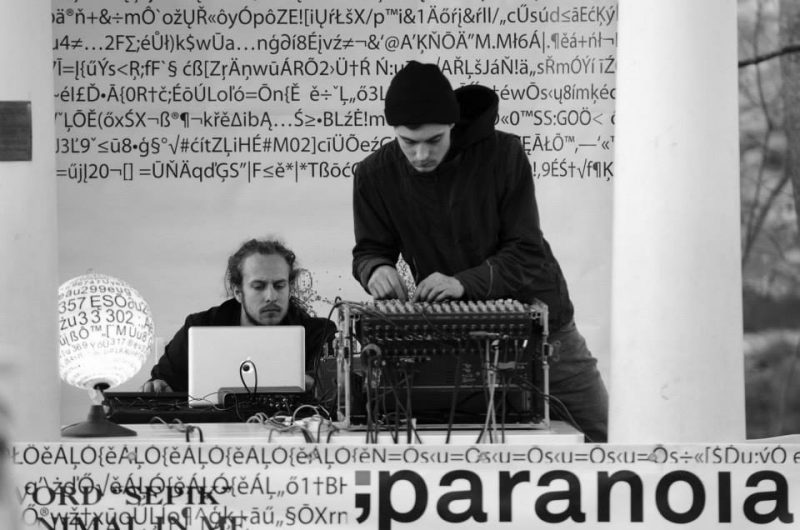 Paranoia Publishing Presentation, AGF poemproducer. Photo: Rauno Kalda.[/caption]
Paranoia Publishing Presentation, AGF poemproducer. Photo: Rauno Kalda.[/caption]Prima Vista has the aim of ‘enriching cultural life in Estonia and also to introduce foreign literatures in order to support the building of cultural bridges between different cultural communities. What role do you think literary festivals can play in raising awareness between different cultures?
Literary festivals – and art/culture festivals in general – indeed help to broaden the mind and acquire knowledge; the readers have an opportunity to meet writers with different cultural backgrounds, discover new books and participate in various discussions. But first and foremost, festivals highlighting the role of verbal arts and literacy and contribute to the development of critical thinking and understanding. The Information Age means that we have access to an unfathomable amount of knowledge but without critical thinking and deep understanding we do not have the ability to navigate in it and information alone does not always make us understand. Here, literature functions as a beacon in a way by training our imagination, helping us to develop critical thinking and deepening the ability of understanding, which is especially necessary if we want to increase the awareness about different cultures.
Why do you think it’s important to have an internationally focused literature festival specifically in the Estonian context?
Nobody has the time to read everything and it is also hard to orientate oneself in the literary landscape, as there are thousands of books published per day worldwide. Thus a selection has to be made and for cultures of not so widely-spoken languages this selection is also closely linked to translations. The main selectors are the publishers but an internationally focused literary festival also helps the readers make choices, get more acquainted with different authors, works and forms of literature. A literary festival also contributes to the communication between writers, translators, critics and readers.
[caption id="attachment_58488" align="aligncenter" width="620"]
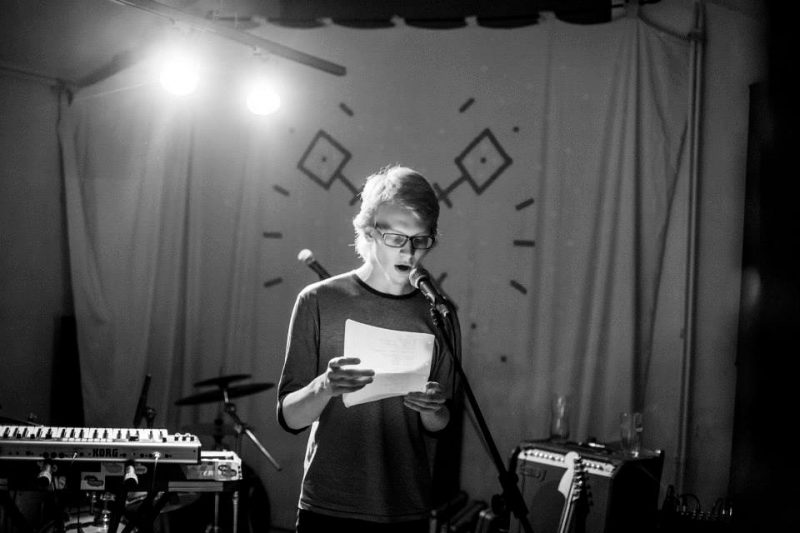 Prima Vista 2015 Tar-Slam Finals. Photo: Uku Peterson.[/caption]
Prima Vista 2015 Tar-Slam Finals. Photo: Uku Peterson.[/caption]Could you explain a bit about working with international writers? For example, how do you select which writers would be best for engaging with the Estonian public or for your specific programme each year?
The selection process – or I would rather say the process of inviting guests – is different with each guest. A lot depends on our partners – we cooperate with various cultural institutes and embassies and consider their recommendations. The main principle is (although there have been some exceptions) that there has to be something translated into Estonian from each author because it is quite hard to attract the audience if they cannot read the authors works. We also collaborate with publishers and if – as in some cases happens – we find an interesting author who has not been translated into Estonian we try to find a publisher to get at least one book translated and published by the beginning of the festival.
Literature relies on words, language and communication. What languages do you present events in and how do you manage the different languages in some of the events with international writers?
There are of course quite many events only in Estonian but as we have international guests we try to provide translations as much as we can – for example the opening ceremony has synchronised translation into English and Russian. The main languages at the events where foreign guests perform are English, German, Russian and Finnish but there are also other languages depending on our guests. We use either synchronised or consecutive translation into Estonian at the meetings with foreign guests. Sometimes languages other than Estonian are used also at events not linked with foreign authors – for example one of the warm-up events of this year’s festival was a night dedicated to Aristotle and some texts were read in Ancient Greek.
[caption id="attachment_58489" align="aligncenter" width="620"]
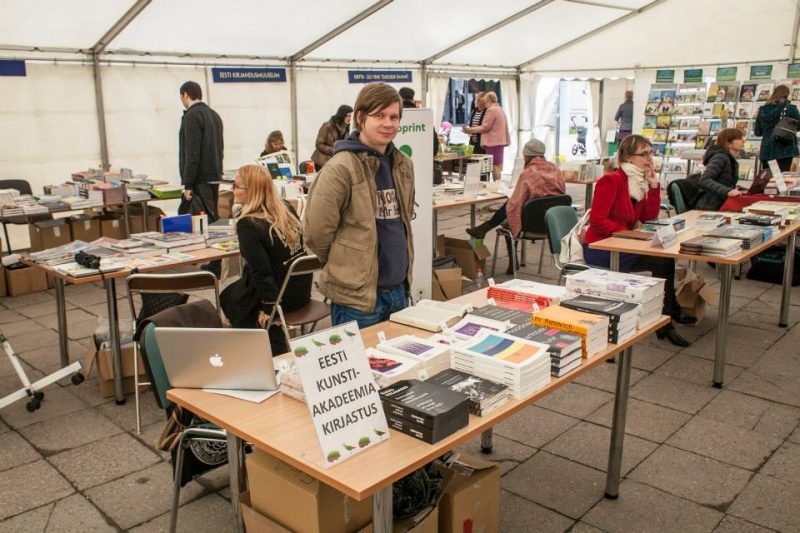 Prima Vista 2015 Book fair. Photo: Uku Peterson.[/caption]
Prima Vista 2015 Book fair. Photo: Uku Peterson.[/caption]What kind of collaborations does Prima Vista develop? Do you collaborate with other literary organisations or other festivals?
The variety of our programme is in great part a result of good cooperation between the central organising team and many partners. Prima Vista collaborates with a number of institutions and organisations, among them are also those which are not specifically literary (for example this year one of our partners is the Researchers’ Night Festival). We have also collaborated with other festivals to integrate literary events in their programmes.
Tartu recently became a UNESCO City of Literature, how do you think this will impact the literature community in the city and the Prima Vista festival?
Prima Vista is undoubtedly the highlight of the literary life in Tartu and as UNESCO City of Literature we will work more intensely on international communication and collaboration – the UNESCO Creative Cities Network provides a good platform for networking and collaboration to initiate new projects and exchange experience. This will definitely affect Prima Vista and there will be network-related events already in the programme of the next year’s festival. Another impact is of course the fact that the status of UNESCO City of Literature makes it a bit easier for us to introduce Tartu, our festival and Estonian literature on international scale.
[caption id="attachment_58490" align="aligncenter" width="620"]
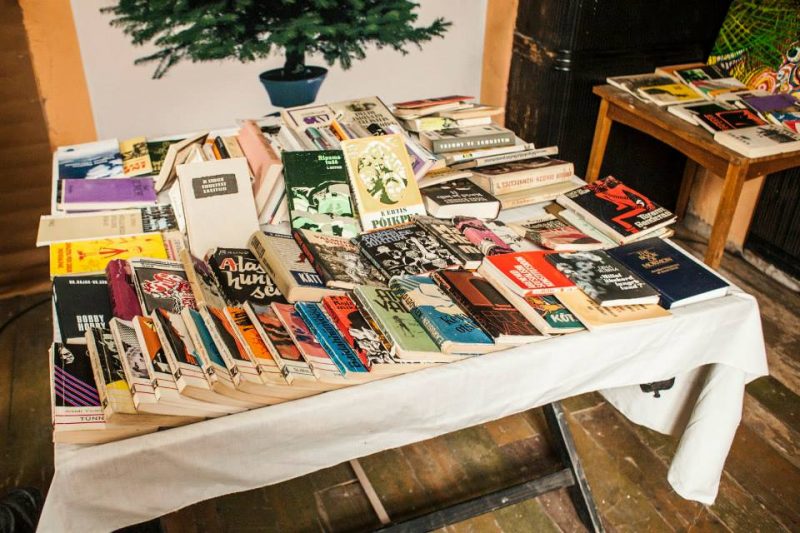 Prima Vista 2015 Anna Haava 7a library. Photo: Uku Peterson.[/caption]
Prima Vista 2015 Anna Haava 7a library. Photo: Uku Peterson.[/caption]What are some of the challenges of programming a literature festival?
The main challenges are related to various issues that concern non-profit initiatives: the instability of financing (there are different sources of funding and different schedules of calls for applications so it is impossible to plan the budget early, at the same time we need to invite foreign guests as early as possible so that they can plan their schedule). Another challenge is more literature-specific and linked with the fact that we are a small country and a small language, we rely on translations in intercultural communication. This applies to both directions of communication – introducing other cultures here and introducing Estonian literature to others. One of the future aims of the literary festival is to find more ways to offer our foreign guests an opportunity to get more acquainted with Estonian literature.
[caption id="attachment_58491" align="aligncenter" width="620"]
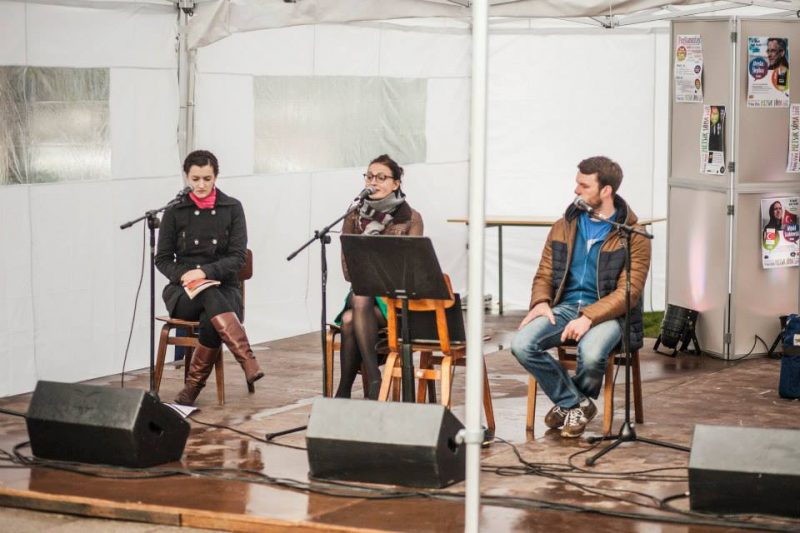 Prima Vista 2015, discussion on poetry. Photo: Uku Peterson.[/caption]
Prima Vista 2015, discussion on poetry. Photo: Uku Peterson.[/caption]Claire Rosslyn Wilson is a poet and non-fiction writer who focuses on writing about arts and multicultural topics. She has eight years of professional experience in resource development and the arts and has worked with international and non-profit organisations in Thailand, Singapore and Australia. She has had her work published in various journals and is currently doing a PhD on creative writing and cultural adaptation. You can follow her on Twitter @clairerosslyn.
Similar content
deadline
15 Feb 2023

